Shanghai leads country in pioneering, upgrading profitable playgrounds
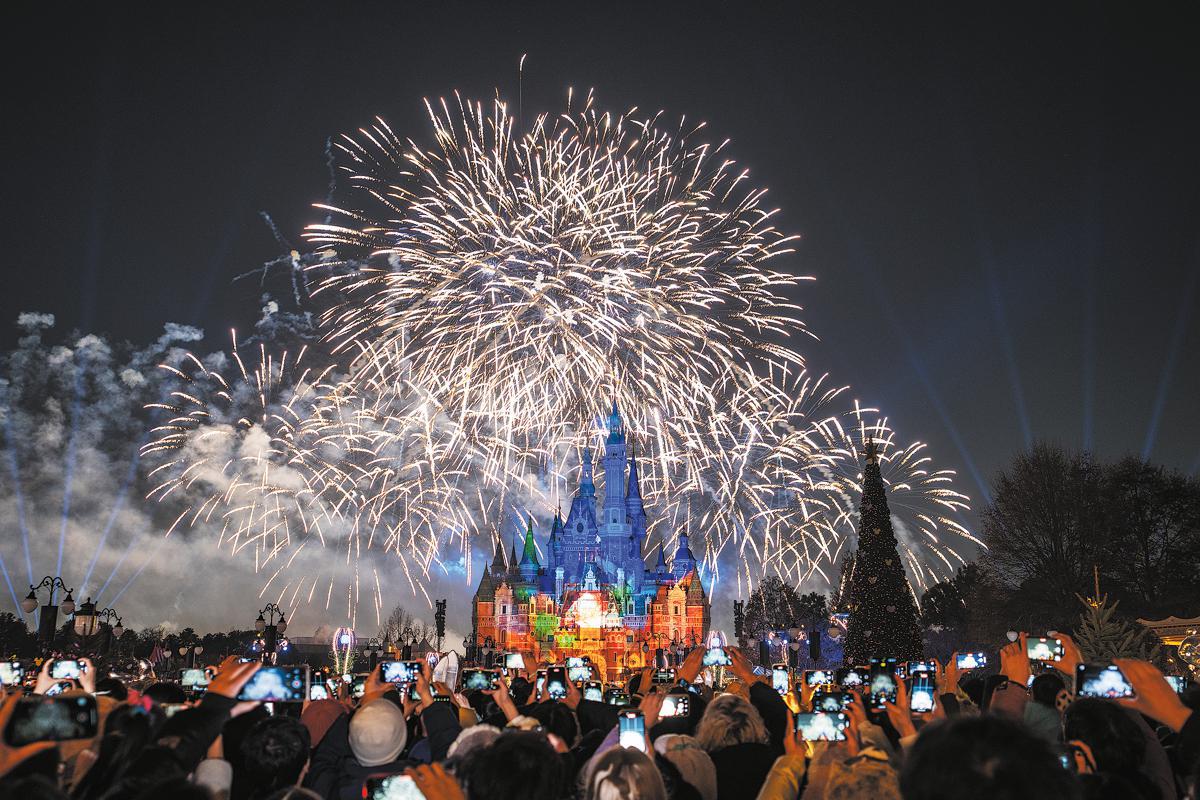
Shanghai is poised to cash in on the "happiness economy "as it undergoes a surge in construction of new theme parks and upgrades existing ones, tourism and industry experts said.
Already the theme park capital of China, Shanghai has seen the opening this summer of the country's first Legoland, to be followed by a slew of other major projects including the world's biggest Peppa Pig theme park, which is slated to launch in 2027.
"Driven by the varied supply and strong consumption, as well as its good business environment, theme parks in Shanghai and China can unlock an enormous theme park economy," said Dai Bin, president of the China Tourism Academy.
ALSO READ: Over 800m railway trips made during China's summer travel rush
While it usually costs billions of yuan or more to build a theme park, owners can recoup those costs through annual consumption, with thousands of jobs created and a boost given to the entire supply chain, he said.
"I believe Shanghai is poised to become a new cultural and creative hub, a focal point for theme parks, and a landmark region for cultural and tourism development," Dai said.
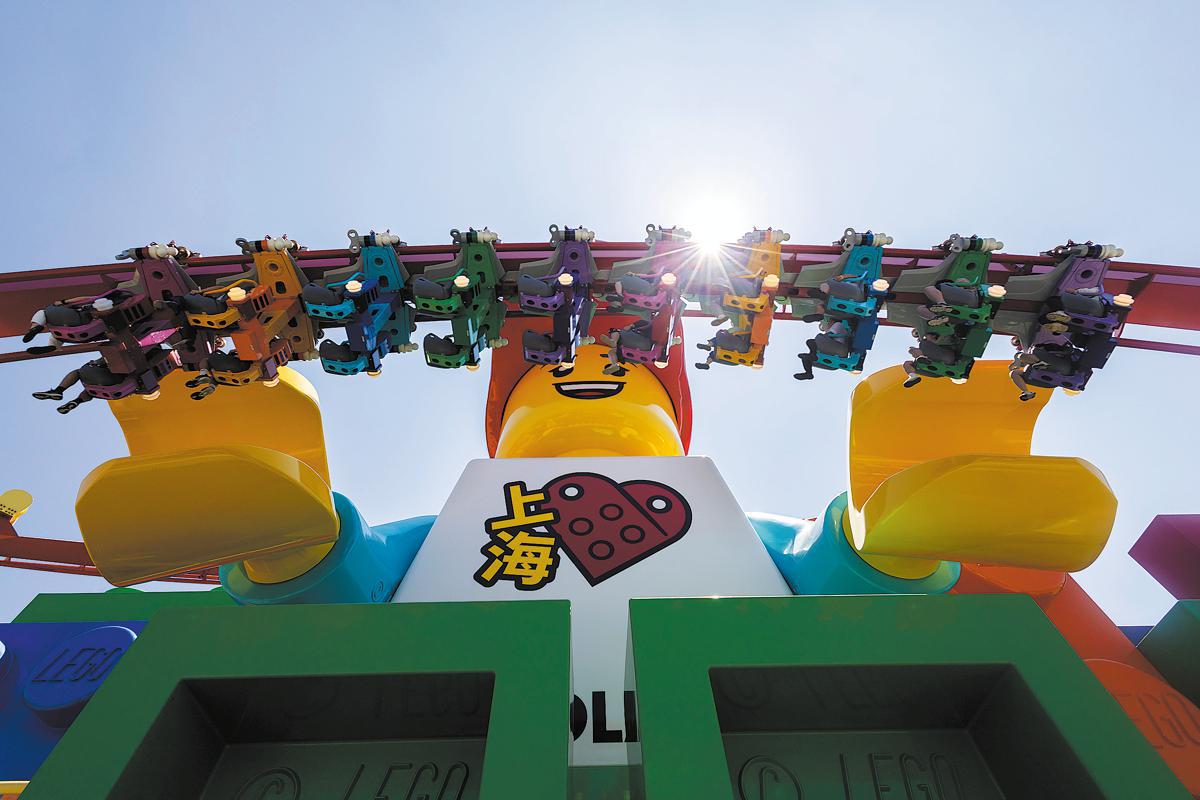
Building surge
Legoland Shanghai Resort officially opened on July 5.
Spanning 318,000 square meters, the resort is the world's 11th and largest Legoland at its opening. Designed to cater to children aged 2 to 12 and their families, the Shanghai resort features eight themed areas, offering over 75 interactive rides, shows, and attractions.
On May 19, Shanghai Disney Resort announced the groundbreaking of its ninth themed land, the Spider-Man zone. Located adjacent to Zootopia, the new zone will include the park's first major Marvel-themed attraction — a thrilling Spider-Man roller-coaster ride.
Shanghai Disneyland welcomed more than 14 million visitors in 2023, ranking fifth among theme parks worldwide and securing its position as the most visited and popular theme park in China, according to the 2023 Global Attractions Attendance Report released by the Themed Entertainment Association (Tea) and the consulting firm Aecom.
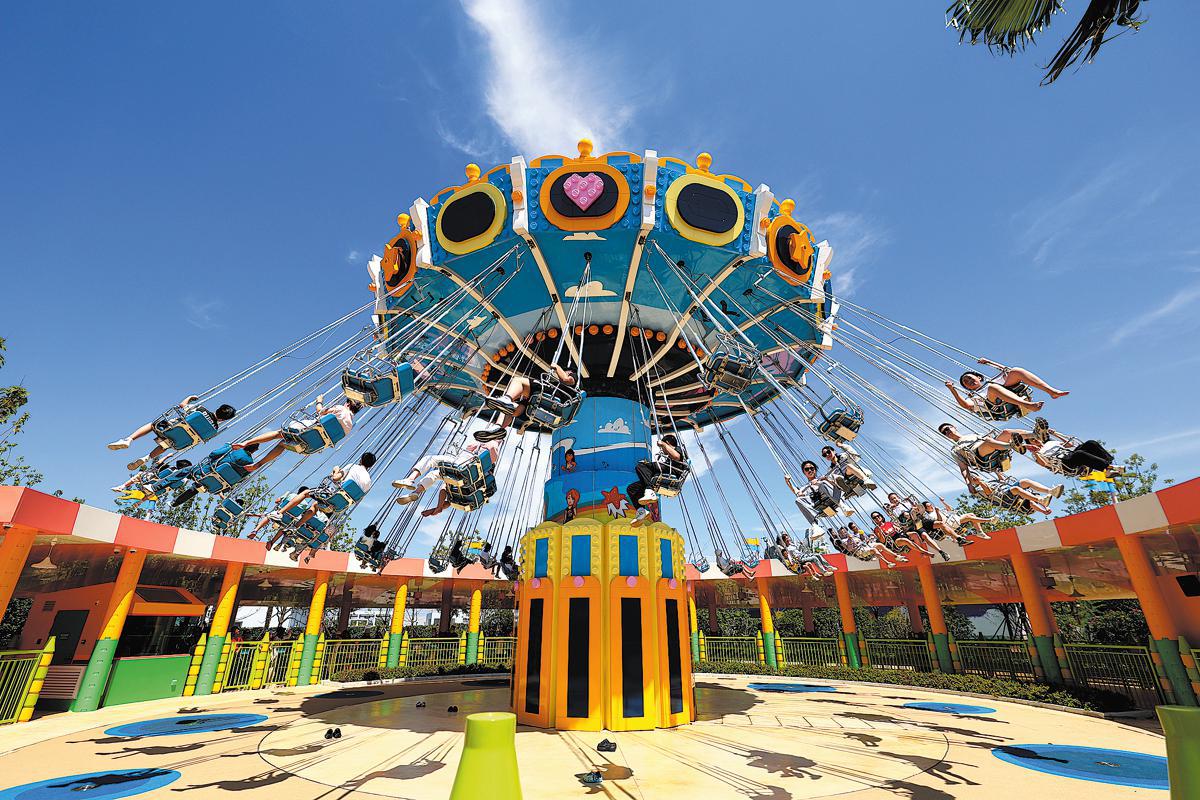
On Feb 12, Jin Jiang International Holdings Co Ltd announced it had signed a joint venture framework agreement with Warner Bros to open a Harry Potter studio tour. It will be the third such attraction globally, and the first in China.
Officially named Warner Bros Studio Tour Shanghai — The Making of Harry Potter, it will be located in the renovated Shanghai Jinjiang Action Park.
The planned theme park, scheduled to open in 2027, will offer visitors a behind-the-scenes experience on the making of the Harry Potter films and bring iconic scenes to life.
READ MORE: Cross-border passenger trips hit 20m, GBA ‘one-hour living circle’ boosted
Unlike its counterparts in London and Tokyo, the Shanghai version will incorporate Chinese elements and feature enhanced interactive experiences powered by digital technology, according to a China Times report.
The Peppa Pig outdoor theme park project — spanning about 193,333 sq m on Changxing Island — will include an outdoor theme park, a themed hotel, and a commercial street. The park will also feature five themed zones such as ocean and winter areas, according to the toy and game company Hasbro and Max-Matching Entertainments Co.
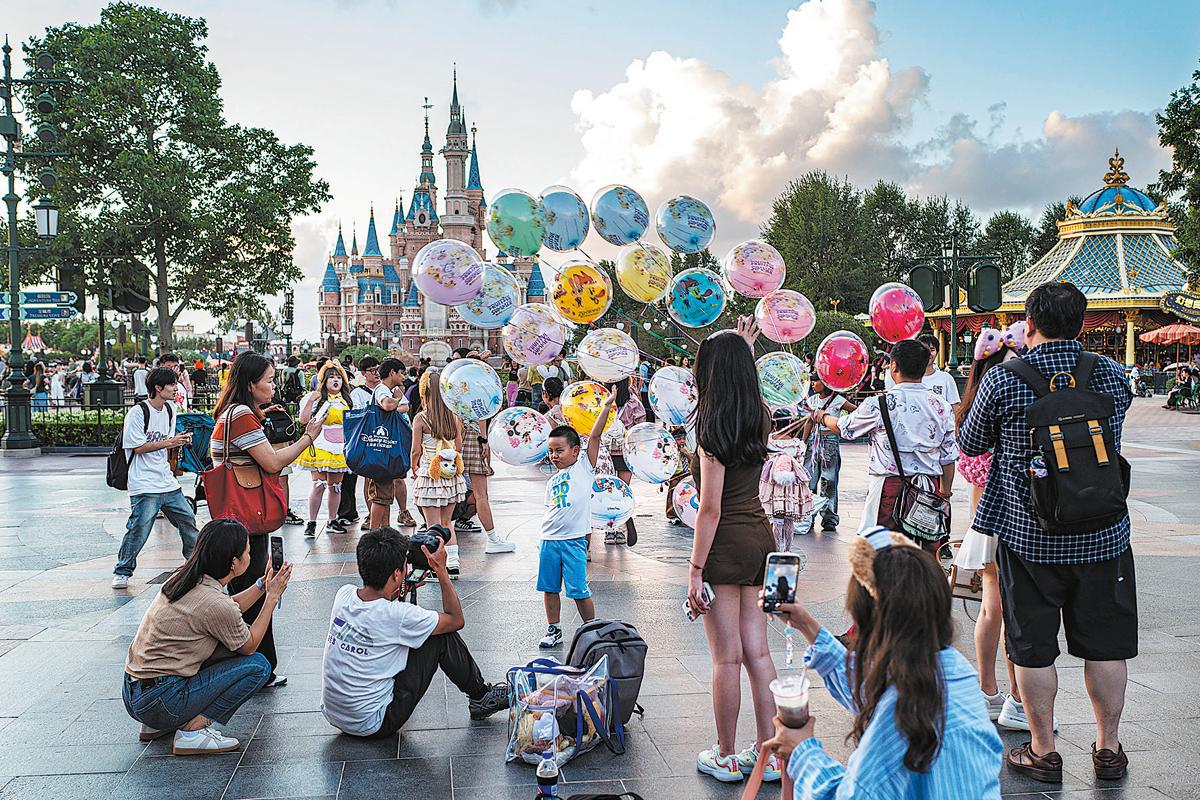
Driving forces
Shanghai's large and stable population forms a solid foundation for the sustainable operation of theme parks, experts said. By the end of 2024, Shanghai's permanent population was almost 25 million, with a large urban middle-income group known for its strong spending power and consistent consumption patterns.
"Whether it's families with children, young adults, or Generation Z, Shanghai residents have well-established habits and cultural preference for high-quality leisure experiences," said Lyu Mei, head of strategic consulting with JLL East China.
As the first stop in China for many international travelers, Shanghai welcomes a high volume of tourists annually, said Lyu. Demand from domestic and international visitors significantly enhances the operational efficiency and profit potential of theme parks.
READ MORE: National Games tickets, Bitcoin Asia, Eye of the Bay Area, Shenzhen SEZ birthday
"Shanghai's strong infrastructure and policy support have facilitated the development of theme parks. On the 'hardware front', the city provides top-tier resources in land supply, municipal infrastructure, and environmental capacity. On the 'software side', it boasts a solid foundation in cultural creativity, digital entertainment, and live performance production," Lyu said.
Shanghai's status as a global city keeps attracting world-class theme park brands. For international IPs, establishing a presence in Shanghai enables them to reach wider audiences in eastern China, and access the national market and broader Asia-Pacific region, she added.
Zhu Jianhui, senior director and head of retail research with JLL China, believes Shanghai's appeal to foreign investors is unmatched.
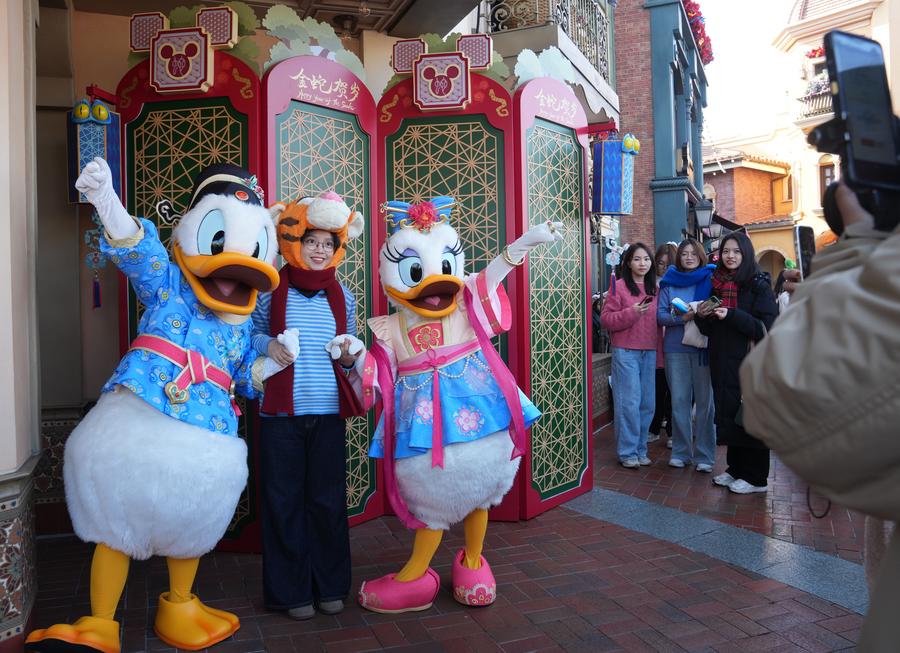
"Shanghai stands as China's leading retail consumption hub and the most developed city for flagship stores and first-launch projects. For foreign investors, choosing Shanghai as their initial entry point into the Chinese mainland market aligns strategically with their business goals," Zhu said.
Theme park development is not an isolated industry, as it drives urbanization and stimulates the growth of surrounding commercial, residential, and supporting sectors, Zhu added.
Alex Chen, regional managing director with CBRE Eastern China, said: "Since the opening of Legoland in Shanghai's Jinshan district, homestay bookings in Jinshan have surged sixfold compared with the same period last year."
READ MORE: Foreign influencers arrive to turn focus on culture, creativity
Chen is confident the park will bring significant benefits to the area beyond increased hotel reservations.
"The park is expected to serve as a hub, linking together local cultural and tourism assets — such as the Shanghai Fengjing ancient town, the Jinshan City Beach, and the nearby tea gardens and historic temples — helping to create two — to three-day travel itineraries," Chen said.
At a tourism development conference in March, Shanghai rolled out a three-year action plan to build the nation's top inbound travel gateway, a premier urban tourism destination, and a model for cultural-tourism integration. The plan calls for building world-class landmarks and upgrading its cluster of world-class theme parks.

Nationwide trend
Theme parks are not limited to major cities like Shanghai and Beijing, but represent a nationwide economic phenomenon.
Eighty-six major theme parks across the country recorded a total of 130 million visitor trips in 2023, generating about 30.39 billion yuan in revenue, up 97.86 percent year-on-year, the 2024 China Theme Park Competitiveness Evaluation Report, showed. Visitor numbers rose 71.84 percent compared with the previous year.
China's theme park economy has been expanding steadily in recent years, with the market size projected to exceed 110 billion yuan by 2028, reported the 21st Century Business Herald, citing figures from China Insights Consultancy.
Fantawild, a Shenzhen-based entertainment and technology firm, recorded 85.69 million visits in 2023, up 111 percent from 2022, propelling it from fifth to second place in the global rankings, according to a report by Tea and Aecom.
"This achievement, second only to Disney, is credited to Fantawild's long-standing commitment to its mission of bringing more joy to the world and its adamant focus on the broader happiness economy since its inception," said Yun Aihua, vice-president of Fantawild Holdings Inc.
Since opening its first large-scale theme park in 2007 in Anhui province, Fantawild has expanded to operate over 40 theme parks across China, spanning more than 20 cities in over 10 provinces and autonomous regions.
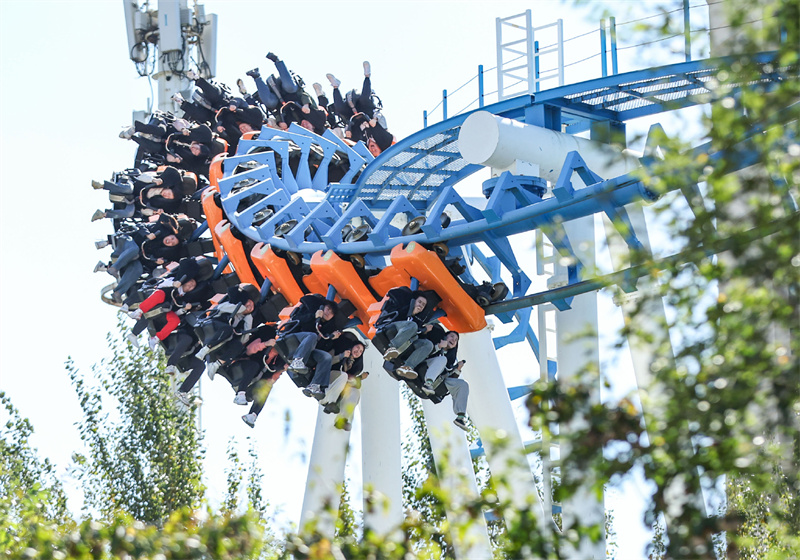
"Theme parks, as man-made attractions and tourism destinations, are products of a certain stage of socioeconomic development. They typically emerge when per capita GDP reaches a certain threshold and urbanization reaches a mature level, reflecting a solid social and economic foundation," Yun said.
The Happy Valley Company operates eight amusement parks and 10 water parks in major cities including Beijing, Shanghai, Shenzhen, Guangdong province, and Chengdu, Sichuan province. With a total of 25 themed attractions in 13 cities nationwide, the group welcomes around 40 million visitors annually.
Li Yi, deputy general manager of Happy Valley Cultural Tourism Development Co believes two trends will emerge in the theme park economy.
"First, technology-driven innovation will play a leading role, with advancements such as AI enabling the emergence of virtual theme parks and personalized experiences that transcend physical boundaries. Second, cultural empowerment will deepen as the rise of domestic IPs fosters both cultural confidence and commercial value," Li said.
"Ultimately, content innovation and user-centric design will be essential for the happiness economy to evolve into a sustainable driver of consumer growth," he added.
Contact the writer at wang_ying@chinadaily.com.cn


